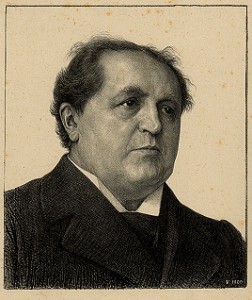


In recent years, Christian leaders, teachers, and pastors have putrenewed focuson the importance of integrating faith and work, recognizing the eternal significance of economic activity.
Yet despite the array of resources and solid teaching on the subject,many Christianscontinue to struggle with feelings of apathy or ambivalence when es to their work.In my own discussions, it’s the mon responseI encounter:
“I understand that God is glorified through my work,” they’ll say. “I understand that he’s gifted me and called me and sent me to do something important. But it sure doesn’t feel like it.”
Indeed, it’s one thing when we feel like our gifts are aligned with our callings, when we enjoy our jobs and careers, andwhen we believethatwe’re doing something transformational in the broader economic order. But it’s quite another when we feel underutilized and unrecognized, when the work is unglamorous and unsatisfying, and when we have a sense, even a spiritual sense, that “surely their must be more.”
In a post at The Green Room, a new blog on faith, work, and vocation, Greg Forster reflects on suchsituations, asking what the Gospel might say to those struggling to find purpose and meaning.
If work is supposed to have “meaning” and “purpose,” why does it so often feel like suffering? Or, as it pertains specifically to the pain and fatigue of manual labor, “What does the faith and work movement have to say about jobs that make our bodies ache at the end of the day?”
The short answer: Work is economic service, and economic service is fundamentally service:
mon than the person who can’t work because of physical suffering is the person whose work causes their physical suffering. In the famous bubble quiz, which diagnoses how deep inside the bubble of elite culture you are, one of the most striking questions is this: “Have you ever held a job that caused something to hurt at the end of the day?” In the most recent version, this fascinating caveat was added: “Headaches don’t count, neither does carpal tunnel syndrome, nor does a sore rear end from sitting all day in front of puter screen.” …Endurance through suffering is a key biblical theme, often associated with daily work. We see this not only in the narratives of captivity in Egypt or Babylon, but also in the wisdom literature that tells us to expect suffering even when we’re free and life is good. Paul writes in Romans 5:3-5: “We rejoice in our sufferings, knowing that suffering produces endurance, and endurance produces character, and character produces hope, and hope does not put us to shame, because God’s love has been poured into our hearts through the Holy Spirit who has been given to us.” And then there is the great masterpiece, Job, which puts the question of suffering front and center.
God loves us and made us for work, so that we could love him and each other through our work. But in a fallen world love is hard. To love God and neighbor in our broken condition is to endure suffering. That we do so willingly, rejoicing in the Lord, and that we are willing to forego work for the Lord as well, is how we know “God’s love has been poured into our hearts through the Holy Spirit.”
This doesn’t mean it’s any easier to find or feel that meaning when we’re in the thick of it, as Forster duly notes. But it does mean we have access to a different sort of empowerment by the Spirit, one that enables us to live in grace and joy and freedom, even when our work is punctuated by earthly sorrow.
As DeKoster explains in his book,Work: The Meaning of Your Life:
“Lose your life …,” is Jesus asking us? He is talking about the martyrdoms of labor too.
Job heroism has no class distinctions, only differing forms. There are frontiers all over our workaday world requiring courage and perseverance as intrepid as ever conquered any geographical frontiers. Frontiers met and bested every day, in the kitchen, in the bs of industry, in the glare of the front office, in the high level visibility of the rich and the powerful.
Work can be cross bearing, self-denying, and life-sacrificing; because work is following the Lord in ways of service, be that in ways hidden to all but God alone or at an envied occupation demanding sacrifices only the doer can know.
Work shapes the soul, adds value to others, and in the process, knits together the fabric of civilization and culture. We will endure seasons of difficulty where we feel underutilized and ill-fitted, but those burdens are taken up in service to our neighbors, and thus to God.
In that, we find meaning. In that, we find joy. In that, we experience and participate in the love of the Father. And that’s where economic transformation ought to begin.









